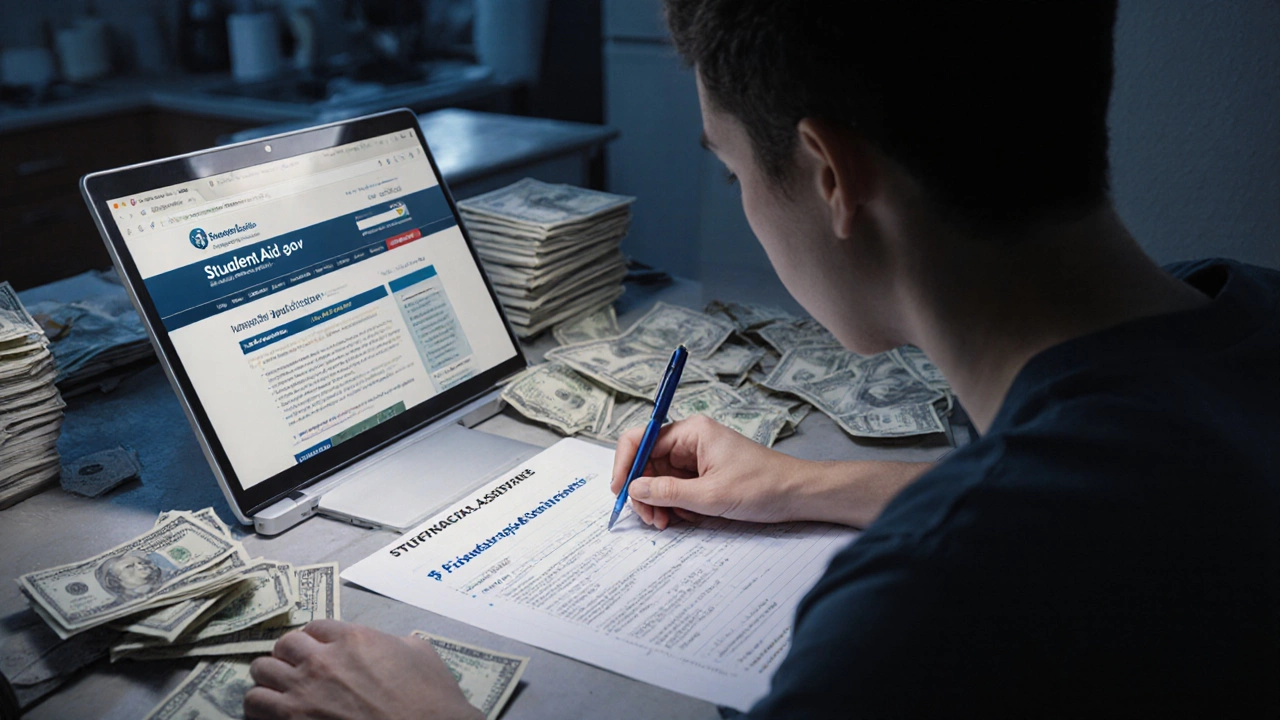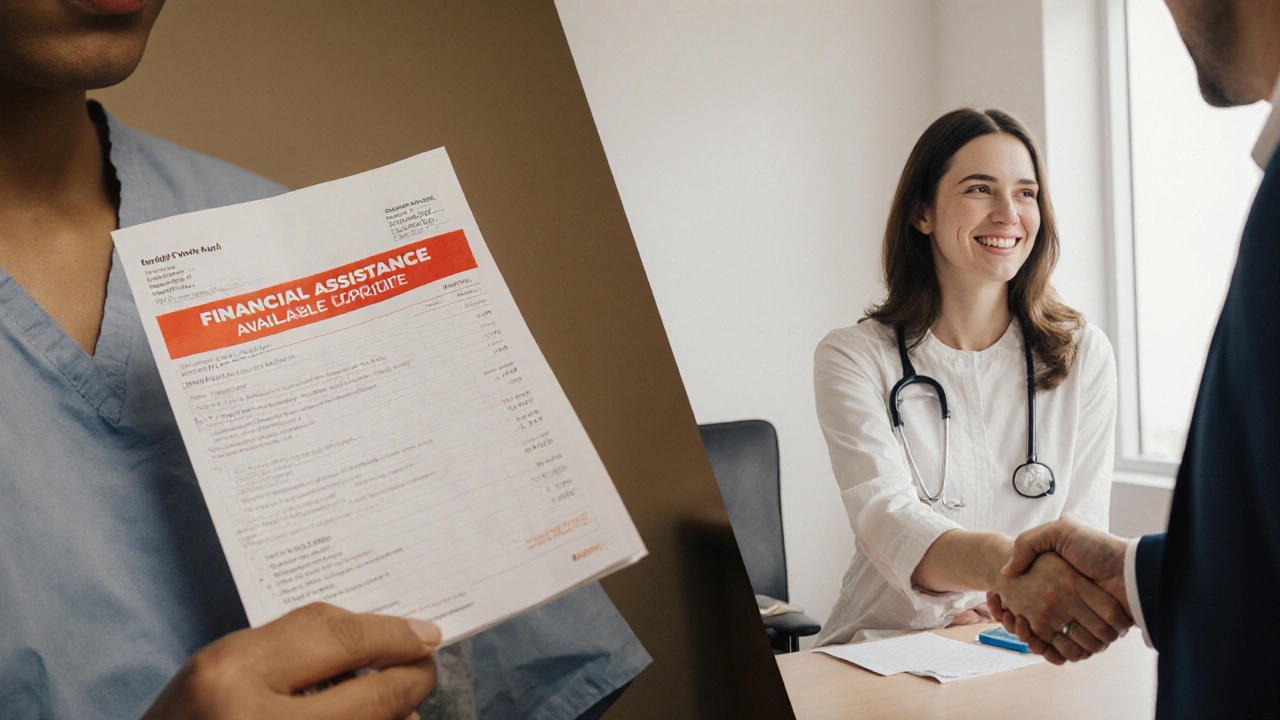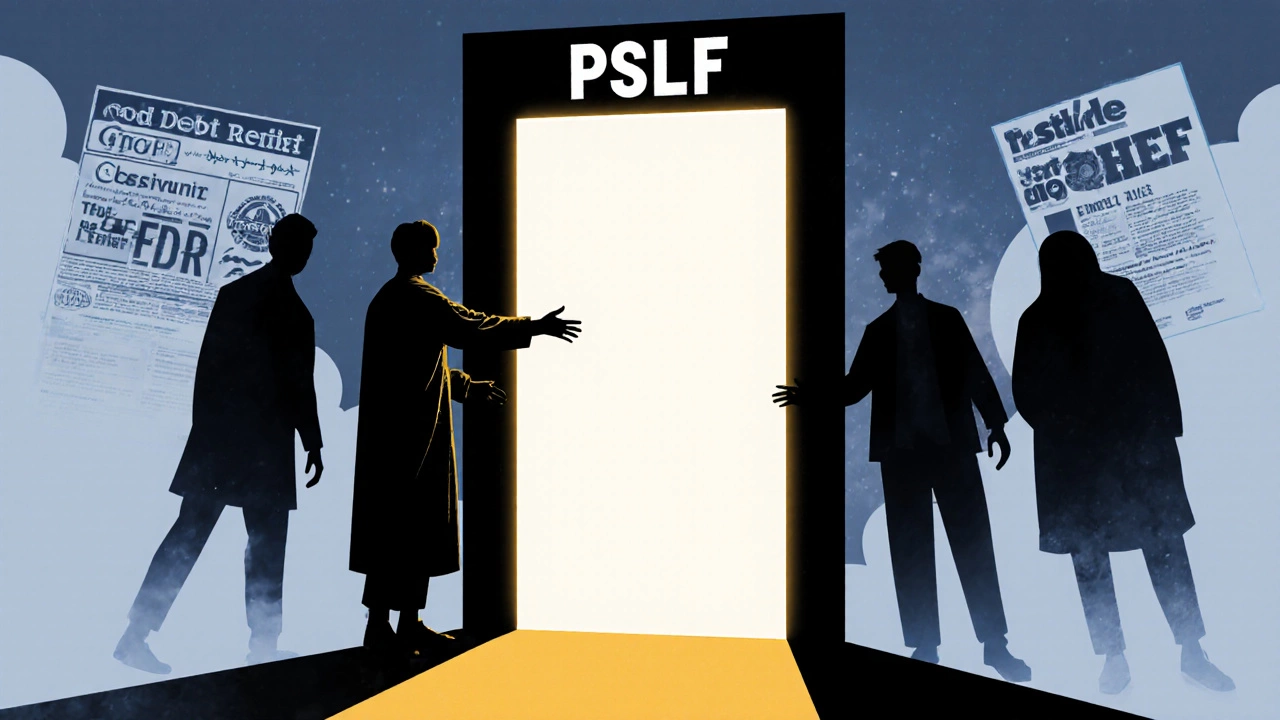Does the US government have a debt relief program? Here's what actually exists
 Oct, 28 2025
Oct, 28 2025
Many people struggling with debt wonder if the US government offers a direct debt relief program-something like a grant or loan forgiveness that wipes away what you owe. The short answer is: no. There’s no single federal program that pays off your credit card debt, medical bills, or personal loans just because you’re having a hard time. But that doesn’t mean help doesn’t exist. What you’re looking for is a mix of targeted programs, temporary pauses, and legal pathways that can reduce or restructure your debt under specific conditions.
There’s no blanket debt relief for everyone
The idea of the government stepping in to erase personal debt sounds appealing. But the US doesn’t have a program like that. Unlike some countries with national debt forgiveness initiatives, the American system is built around individual responsibility and means-tested assistance. If you owe $20,000 in credit card debt, the federal government won’t send you a check to pay it off. You won’t find a government website where you can apply for ‘debt cancellation’ the way you would for unemployment benefits.
What you will find are programs designed for very specific situations. These aren’t automatic. You have to qualify. And they often come with strings attached-like income limits, repayment plans, or public service requirements.
Student loans: the closest thing to debt relief
If you have student loans, you’re in the best position to get federal help. The Department of Education runs several programs that can reduce or eliminate your balance, but only if you meet strict criteria.
- Public Service Loan Forgiveness (PSLF): If you work full-time for a government agency or nonprofit and make 120 qualifying payments under an income-driven plan, the rest of your federal student loans are forgiven. Over 1.3 million people have received forgiveness under this program since 2017, according to the Department of Education.
- Income-Driven Repayment (IDR) plans: These cap your monthly payments at 10-20% of your discretionary income. After 20-25 years of payments, whatever’s left is forgiven-though you may owe taxes on the forgiven amount.
- Loan discharge for disability: If you’re totally and permanently disabled, you can apply to have your federal student loans discharged. The process requires medical documentation and a three-year monitoring period.
- Temporary pauses: During the pandemic, student loan payments were paused and interest was set to 0%. That pause ended in 2023, but borrowers still have access to extended repayment options and one-time forgiveness adjustments that were rolled out in 2022-2023.
These aren’t free money. They’re structured relief for people who’ve already paid into the system or who meet defined hardship rules.
Medical debt: limited options, but real progress
Medical debt is the leading cause of personal bankruptcy in the US. While there’s no federal program to wipe it out, things are changing. In 2023, the three major credit bureaus-Equifax, Experian, and TransUnion-agreed to remove paid medical collections from credit reports. Unpaid medical debt under $500 is also no longer reported at all.
Some hospitals offer financial assistance programs if you’re below a certain income level. These are called Charity Care or Financial Assistance Policies. They’re not federal, but they’re legally required for nonprofit hospitals under the Affordable Care Act. You have to ask. Most people don’t. If you’re struggling with hospital bills, call the billing department and say, ‘Do you have a financial assistance program?’
States like California and New York have passed laws requiring hospitals to offer payment plans without interest. In some cases, they’ll forgive debt entirely if you earn under 250% of the federal poverty level.

Other debts: what’s actually available
For credit card debt, personal loans, or payday loans, federal debt relief doesn’t exist. But you do have legal tools:
- Debt settlement: This isn’t government-run. It’s done by private companies who negotiate with your creditors to accept less than you owe. Be careful-many of these companies charge high fees and can hurt your credit. The Federal Trade Commission warns that legitimate settlement firms don’t charge upfront fees.
- Debt management plans: Offered through nonprofit credit counseling agencies (like the National Foundation for Credit Counseling), these plans consolidate your payments into one monthly amount at lower interest rates. They don’t erase debt, but they make it more manageable. These agencies are vetted by the US Department of Housing and Urban Development.
- Bankruptcy: Chapter 7 and Chapter 13 are federal legal processes. Chapter 7 can wipe out unsecured debt like credit cards if you pass an income test. Chapter 13 restructures your debt into a 3-5 year repayment plan. Both stay on your credit report for 7-10 years, but they’re legal and effective for people who’ve hit rock bottom.
What doesn’t work-and why
Scams are everywhere. You’ll see ads promising ‘government debt relief grants’ or ‘free money to erase your debt.’ These are fake. The US government does not send out checks to pay off private debt. If someone asks for money upfront to ‘lock in your forgiveness,’ walk away.
Some companies claim they can get you into a ‘federal debt relief program.’ They’re lying. The only real federal programs are for student loans, disability discharges, and bankruptcy. Everything else is private negotiation or legal action.
Even the IRS won’t forgive personal debt. Tax debt is different-there are programs like Offer in Compromise for people who can’t pay what they owe. But that’s for taxes, not credit cards or medical bills.

What to do instead
If you’re drowning in debt, here’s what actually helps:
- Check if you qualify for student loan forgiveness. Use the official StudentAid.gov portal to see if you’re eligible for PSLF or IDR.
- Contact your creditors directly. Banks and lenders often have hardship programs. Ask for lower interest, reduced payments, or a temporary pause. You don’t need a third party.
- Find a nonprofit credit counselor. Call the National Foundation for Credit Counseling at 1-800-388-2227. They offer free or low-cost advice and can help you set up a debt management plan.
- Look into medical bill assistance. If you have hospital bills, request a financial aid application. Many hospitals will reduce or forgive your balance if you’re low-income.
- Consider bankruptcy only as a last resort. Talk to a bankruptcy attorney first. Many offer free consultations. It’s not a failure-it’s a legal tool designed to give people a fresh start.
Bottom line: Help exists, but it’s not magic
The US government doesn’t hand out debt relief like a welfare check. But if you have student loans, medical debt, or are in extreme financial distress, there are real, legal, and effective ways to reduce what you owe. The key is knowing which program applies to your situation-and avoiding the scams that prey on desperation.
Don’t wait for a government bailout. Take action. Call your lender. Talk to a counselor. Fill out the forms. The help is there-you just have to reach for it the right way.
Does the US government give free money to pay off credit card debt?
No, the US government does not give free money to pay off credit card debt, personal loans, or medical bills. Any website, ad, or person claiming otherwise is likely running a scam. The only federal debt relief programs are for student loans, tax debt (through Offer in Compromise), and disability discharges.
Can I get my student loans forgiven?
Yes, if you meet specific conditions. Public Service Loan Forgiveness wipes out your balance after 120 qualifying payments while working for a government or nonprofit. Income-Driven Repayment plans forgive remaining balances after 20-25 years of payments. You can also get forgiveness if you’re permanently disabled or if your school closed while you were enrolled.
Is debt consolidation a government program?
No, debt consolidation is not a government program. It’s a private financial strategy where you take out a new loan to pay off multiple debts. The government doesn’t offer consolidation loans. However, nonprofit credit counseling agencies can help you set up a Debt Management Plan, which works similarly but without taking on new debt.
What should I do if I can’t pay my medical bills?
Contact the hospital’s billing department and ask if they offer a financial assistance program. Nonprofit hospitals are required by law to have one. You may qualify for reduced payments or full forgiveness if your income is below 250% of the federal poverty level. Also, unpaid medical debt under $500 won’t appear on your credit report anymore.
Are debt relief companies trustworthy?
Most are not. Debt settlement companies often charge high upfront fees and can damage your credit. Legitimate nonprofit credit counselors (like NFCC members) offer free or low-cost advice and don’t charge until services are delivered. Always check with the Better Business Bureau and the Consumer Financial Protection Bureau before signing anything.
Can bankruptcy erase all my debt?
Chapter 7 bankruptcy can eliminate unsecured debt like credit cards and medical bills if you pass an income test. Chapter 13 restructures your debt into a 3-5 year repayment plan. But some debts can’t be discharged-like student loans (unless you prove extreme hardship), child support, alimony, and most tax debts.
